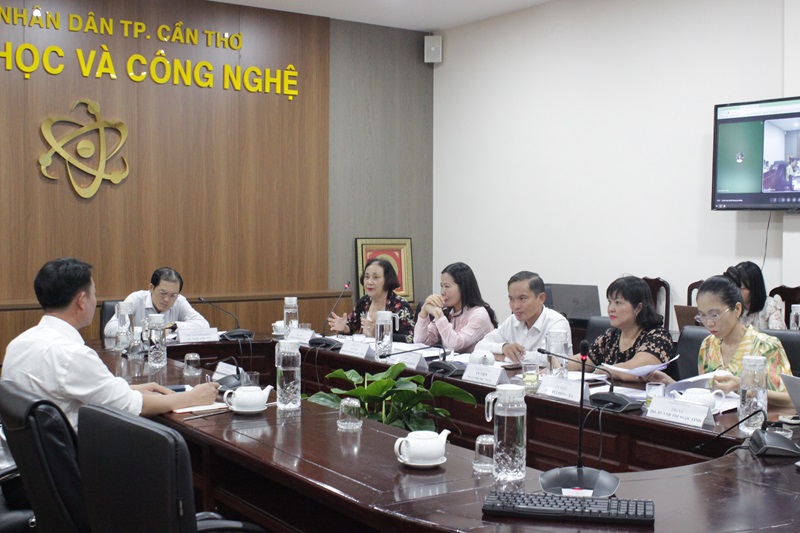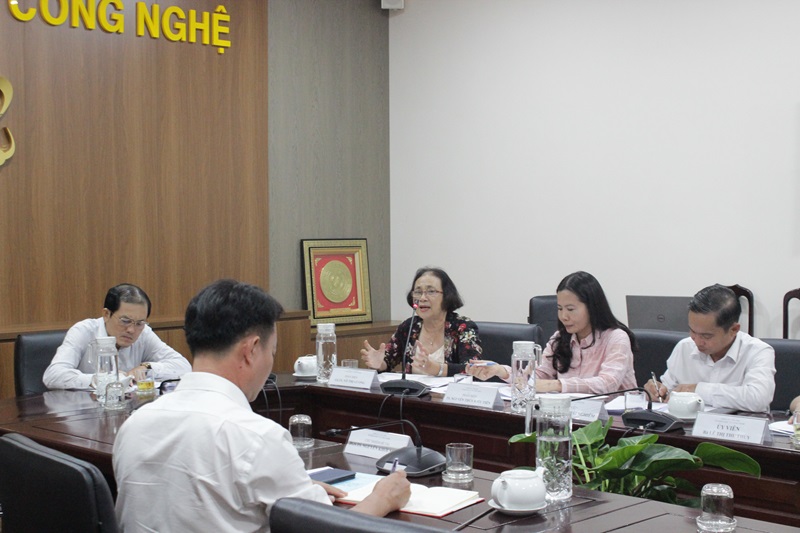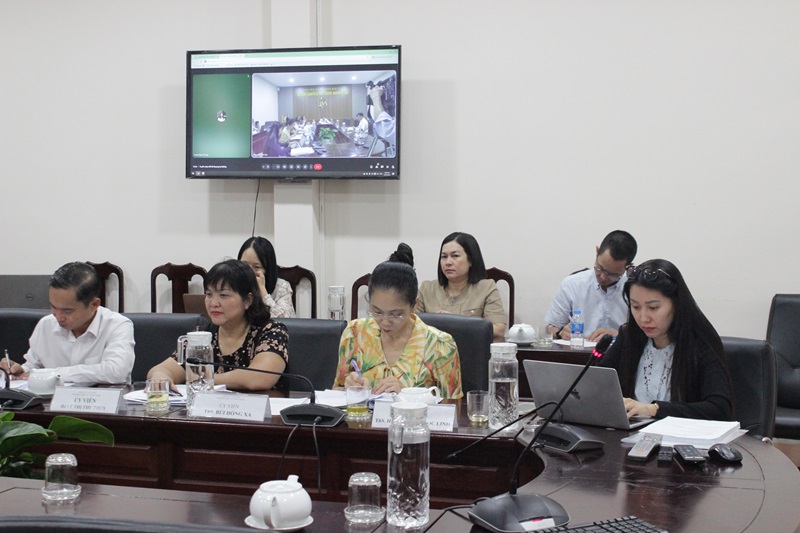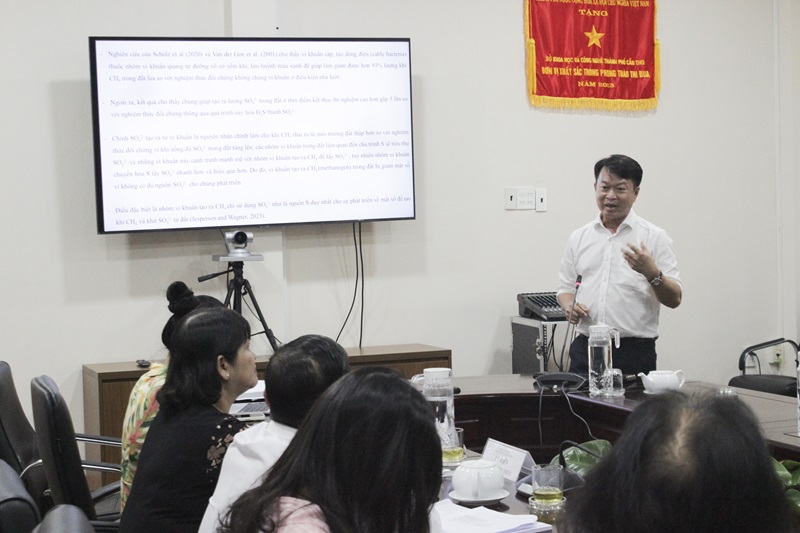Research on the development of anaerobic inorganic photoautotrophic bacteria from rice cultivation soil to help fix CO2 and reduce CH4 emissions on rice land in Can Tho city
In the afternoon of May 16, 2025, Can Tho City Department of Science and Technology held a meeting of the Selection Council to presided the city-level project "Research on the development of anaerobic inorganic photoautotrophic bacteria from rice cultivation soil to help fix CO2 and reduce CH4 emissions."
.jpg)
Overview of the meeting
Attending the meeting, there were Mr. Ngo Anh Tin - Director of the Department, Chairman of the experts from relevant schools, institutes and industries to evaluate the outline and contribute ideas to ensure the project is suitable for the green agricultural development goals of Can Tho City and the Mekong Delta region in the context of climate change.

Overview of the meeting
The study was conducted by Associate Professor, Dr. Nguyen Khoi Nghia, and conducted by Can Tho University.
The project focuses on developing anaerobic inorganic photoautotrophic bacteria strains, especially green sulfur bacteria from rice soil in the Mekong Delta, to improve CO2 fixation capacity, limit CH4 emissions, and increase biological nitrogen.


Council's members
The research includes isolation, selection, and investigation of the ability to consume gas and grow bacteria in the laboratory, as well as field testing on the effects on growth, rice yield, and greenhouse gas reduction in cultivation seasons in Can Tho City. The expected products are two pure bacterial strains, a field model, and a green season application process to reduce greenhouse gas emissions, contributing to promoting sustainable agriculture.

Research team
At the meeting, the members highly appreciated the urgency of the project and its practical significance, in line with the orientation of developing environmentally friendly agriculture in the region. The opposing opinions were accepted by the steering committee to complete the outline, aiming to improve feasibility and application efficiency. This cooperation helps the project become complete, providing feasible scientific solutions to protect the environment, promoting modern and sustainable agriculture.
https://sokhcn.cantho.gov.vn